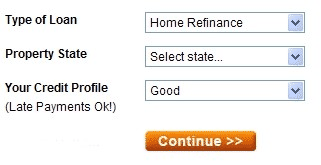Loan To Value (LTV) – Glossary Term
Loan to value or LTV has to fall in a certain range for mortgage approval. You could have 800 credit scores but if your LTV is not there, you do not get approved.
Because of falling home values, many people with great credit and income will not be able to refinance due to a high loan to value. If the value is not there, it is a deal killer and sadly you will not be able to do anything about until the market turns around.
Loan to Value Ratio Definition
Loan to value ratio definition is your mortgage amount compared to the value of your home. It is expressed as a percent. You do not need a special loan to value calculator. This can be done on any home calculator so you can calculate your loan to value right now.
Take your mortgage amount and divide it by the value of your home. For example, mortgage amount $240,000 divided by home value $300,000 is 80%. 80% is the loan to value or LTV. This is also the same calculation used to figure out your debt to income ratio.
Combined Loan to Value
If you have 2 mortgages, it is called a combined loan to value. The first mortgage compared to the value is the loan to value and the first and the second compared to the value is the combined loan to value.
Using the example above, you have a first mortgage of $240,000 and a second mortgage of $45,000. $240,000 added to $45,000 is $285,000 divided by $300,000 is 95%. 95% is your combined loan to value or CLTV.
Most conventional programs out there will not let you go past 95%. If you are buying you have to put down at least 5%. A refinance loan to value is also capped at 95% but remember you have closing costs. Most often on a refinance, they get rolled into the loan amount so if you only have 5% equity, that won’t be enough to cover the costs. FHA loan to value is 97%
Loan to Value Cost
Because of the mortgage mess, lenders are tacking on costs for conventional mortgages depending on your credit score and LTV. There is an add on for your credit score and LTV you have to pay at closing or increase the rate to pay it. The higher your LTV, the higher the add on or hit. The less equity you have the more the lender is going to charge you because you are riskier with less equity. FHA has add ons only for credit scores but conventional mortgages have ones for both credit and LTV.
Previous Post:« Junk Fee – Glossary Term
Next Post:» Negative Equity – Glossary Term
Tags: Combined • Loan To Value • LTV • Refinance


Leave a Reply